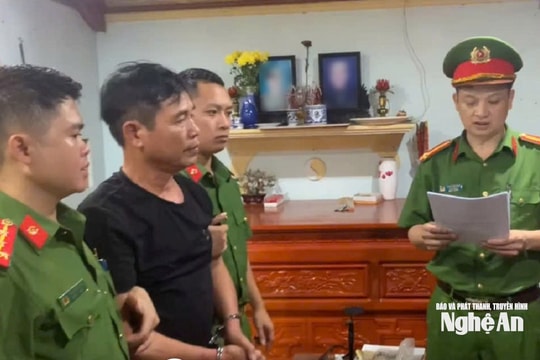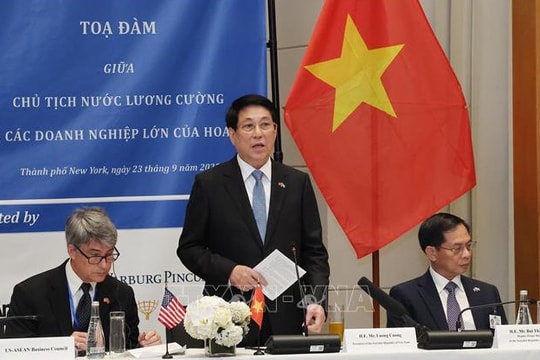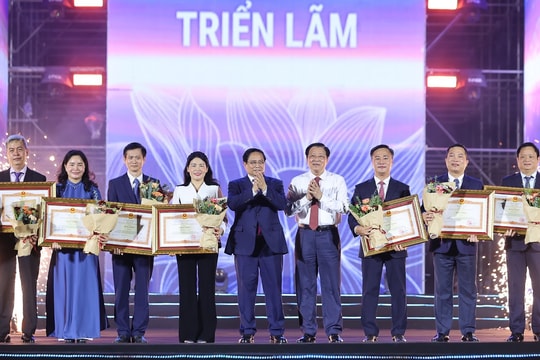The right to freedom of belief and religion as prescribed by the Law on Belief and Religion
(Baonghean.vn) - In our country, freedom of belief and religion is one of the human rights, the basic rights of citizens stipulated by the Constitution and has always received attention from the Party and State, which has issued many policies to recognize, respect, protect and ensure its implementation.
The 2013 Constitution has very important provisions on human rights in general and freedom of belief and religion in particular. Article 24 of the 2013 Constitution recognizes freedom of belief and religion as one of the important and fundamental human rights, respected and guaranteed by the State.
The Constitution also adds the principle that the restriction of human rights in certain cases must be prescribed by law. Accordingly, the right to freedom of belief and religion is a human right, so the regulation of restrictions on the right to freedom of belief and religion must be specifically prescribed by law.
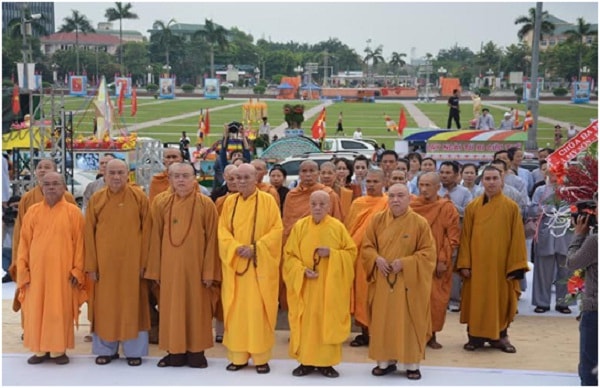 |
| Buddhism with the scent of lotus in Nghe An. Photo: Internet |
Article 24 of the Constitution provides:
“1. Everyone has the right to freedom of belief and religion, to follow or not to follow any religion. All religions are equal before the law.
2. The State respects and protects freedom of belief and religion.
3. No one may infringe upon freedom of belief and religion or take advantage of freedom of belief and religion to violate the law.”
The Law on Belief and Religion was passed at the 2nd session of the 11th National Assembly on November 18, 2016, effective from January 1, 2018, establishing the Constitution on human rights and freedom of belief and religion; in accordance with international treaties to which Vietnam is a member; ensuring the constitutionality, legality, consistency and unity of the legal system.
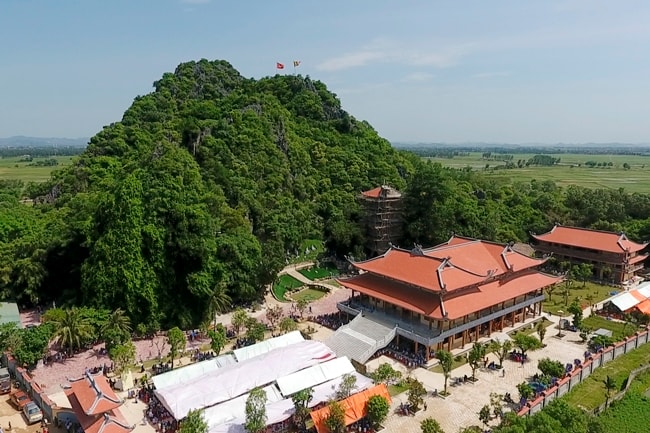 |
| Am Dien Minh ancient pagoda (Dien Chau). Photo: Document |
Article 6 of the Law provides as follows:
“Article 6. Everyone's right to freedom of belief and religion”
1. Everyone has the right to freedom of belief and religion, to follow or not to follow a religion.
2. Everyone has the right to express religious beliefs; practice religious rituals; participate in festivals; study and practice religious doctrines and laws.
3. Every person has the right to enter a religious institution, study at a religious training facility, or attend a religious organization's refresher course. Minors entering a religious institution or studying at a religious training facility must have the consent of their parents or guardians.
4. Religious dignitaries, officials, and monks have the right to perform religious rituals, preach, and propagate religion at religious establishments or other legal locations.
5. Persons under temporary detention or temporary imprisonment in accordance with the law on temporary detention and temporary imprisonment; persons serving prison sentences; persons serving measures of placement in reform schools, compulsory education facilities, or compulsory drug rehabilitation facilities have the right to use religious books and express their religious beliefs.
6. The Government shall detail the guarantee for the implementation of the rights specified in Clause 5 of this Article".
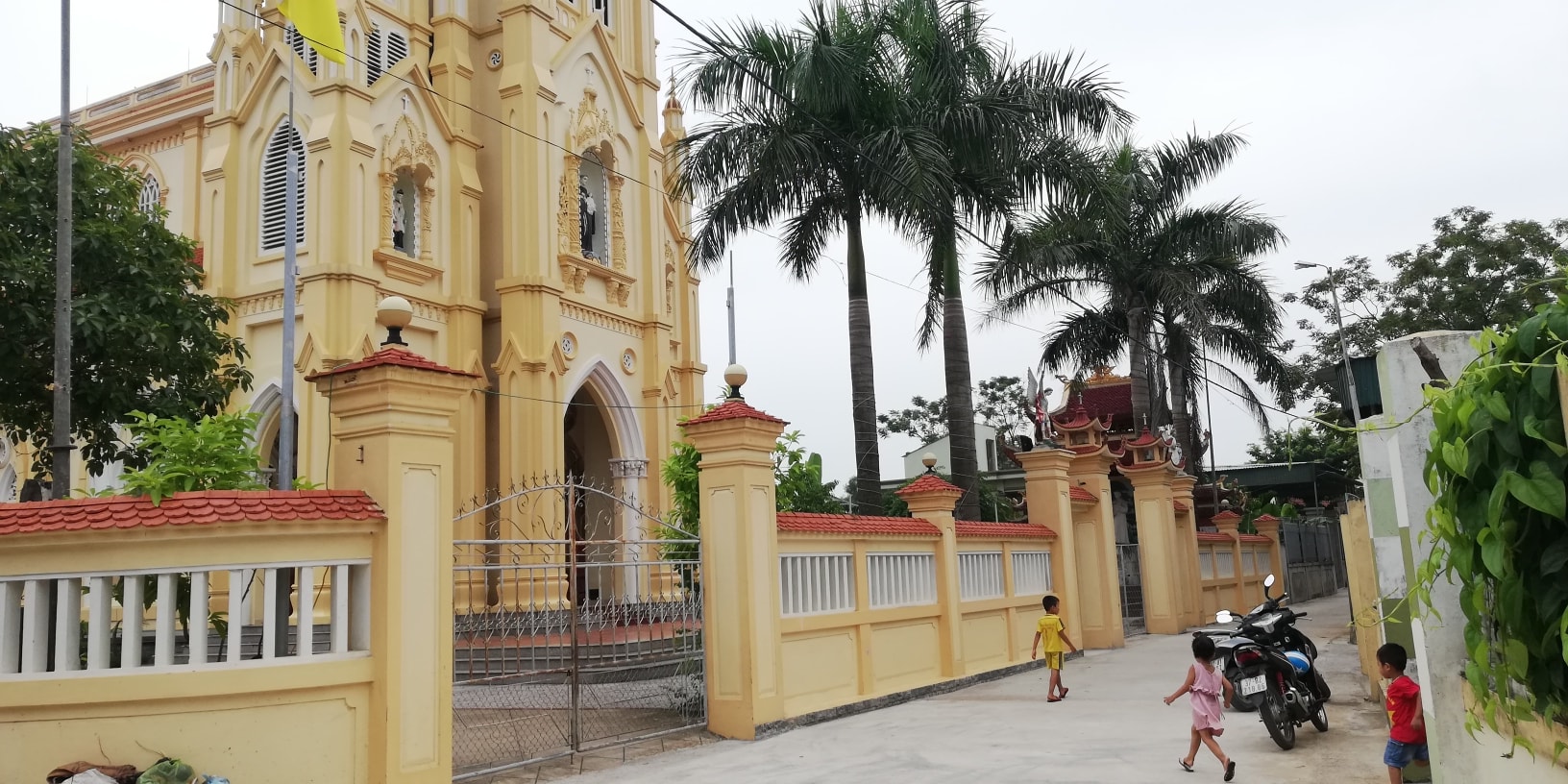 |
| Bac Hong Church was built with solidarity and mutual support between Catholics and non-Catholics. Photo: Mai Giang |
Article 6 not only stipulates the strengthening of the responsibility of state agencies towards subjects enjoying freedom of belief and religion, but also expands the freedom of belief and religion to organizations and individuals.
- Responsibility of State agencies These regulations have expanded the subject of freedom of belief and religion so that the State has sufficient basis to establish mechanisms to ensure and strengthen state management responsibilities for all subjects enjoying and exercising freedom of belief and religion.
At the same time, create a complete and synchronous legal basis for the State to establish limits of rights and specific obligations for all subjects enjoying freedom of belief and religion, ensuring fairness, equality, and non-discrimination of the State in recognizing and ensuring freedom of belief and religion.
It is the basis for consolidating the great national unity bloc, reflecting the aspirations of the vast majority of people, promoting the strength of the great national unity bloc, meeting the requirements of building a rule-of-law state and developing a socialist-oriented market economy, building and defending the Fatherland in the new period.
Enhance responsibility and clearly demonstrate the implementation of the State's commitment to respecting and effectively implementing the rights recognized by the International Convention through legislative activities as well as ensuring citizens' freedom of belief and religion in practice.
- Expanding freedom of belief and religion of organizations and individuals:
+ Expand the scope of subjects of freedom of religious belief, on that basis, organizations and individuals have sufficient legal basis to exercise their freedom of belief and religion. Because freedom of belief and religion is considered an inherent right, not bestowed by any organization, individual or State and no one is allowed to deprive, force or violate and the State must respect and protect that freedom.
+ Through clearly limiting the freedom of belief and religion of each subject, the subjects will clearly know the scope and extent of exercising their rights, the limits of their rights to exercise them in accordance with the law and be protected by the State.
 |
| Panoramic view of Dai Tue Pagoda. Photo: Document |
+ It is an important legal basis for organizations and individuals to request the State to recognize and protect their rights and is the basis for complaints and lawsuits when there are acts of illegal infringement of the rights of organizations and individuals.
+ The right to freedom of belief and religion also includes the right to freely express one's beliefs and faith; the right to practice religion at home and at legal places of worship; the right to participate in activities, serve festivals, religious rituals and study the religious doctrines of the religion one believes in.
+ Affirming the equality of religions before the law. This is of great significance to the birth, existence and development of religions, avoiding the inferiority complex of religious organizations due to being established later or having a small number of dignitaries, officials, monks, followers and places of worship. This provision once again demonstrates the State's policy of respecting and protecting the freedom of belief and religion for religious organizations, regardless of whether the religious organization was established or recognized early or late. In addition to the State's guarantee of the right to practice belief and religious activities according to the provisions of law, the State also always encourages, preserves and promotes the good cultural and ethical values of beliefs and religions.
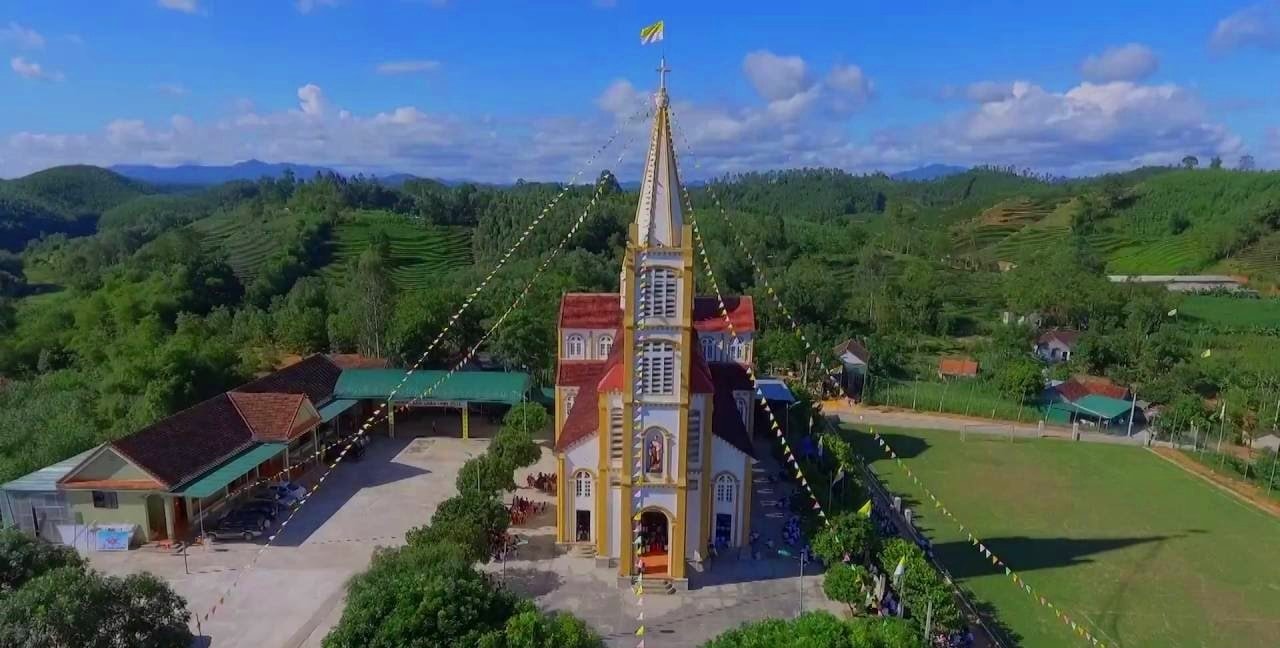 |
| Dong Lam Parish Church, Hung Son Commune. Photo: Thai Hien |
+ More clearly define the rights of subjects who are being detained, held in custody, serving prison sentences, and people who are being sent to reform schools, compulsory education facilities, and compulsory drug rehabilitation facilities to have their individual religious and belief needs met according to relevant laws. This is a very positive provision for these subjects because they are subject to some restricted rights according to the law, but in terms of freedom of belief and religion, they are recognized by the State and their individual religious needs are met.
In addition, after they have completed their prison sentence or probation as prescribed by law, they are allowed to preside over religious ceremonies, preach, teach and manage religious organizations. To exercise the right to preside over religious ceremonies, preach and teach, they must be registered by the religious organization and approved by the competent state agency.
These are completely new regulations, ensuring freedom of belief and religion for everyone, in accordance with the provisions on human rights and freedom of belief and religion for everyone stipulated in the 2013 Constitution as well as the International Covenant on Civil and Political Rights.
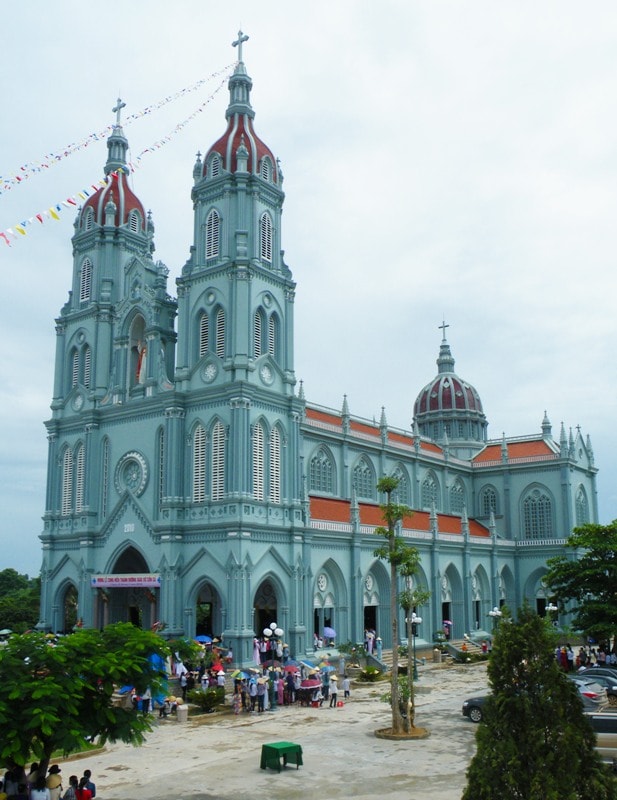 |
| Con Ca Parish Church - Phu Quy Diocese. |
In addition, the Law also stipulates that each person has the right to express religious beliefs; practice religious rituals; study and practice religious doctrines and canons; and the right to enter religious life at a religious institution, study at a religious training institution, or attend religious refresher courses. Minors must have the consent of their parents or guardians when entering religious life at a religious institution or studying at a religious training institution.
Detainees and people in temporary detention according to the provisions of law on temporary detention and temporary imprisonment; people serving prison sentences; people serving measures of placement in reform schools, compulsory education facilities, and compulsory drug rehabilitation facilities have the right to use religious books and express religious beliefs.
Thus, freedom of belief and religion is the right of all people and this right is not limited by nationality, gender, or age. The Law on Belief and Religion is one of the important legal reforms to fully specify the content and spirit of the 2013 Constitution on one of the most important and fundamental human rights, including specifying the limits of the right to belief and religion and enhancing the responsibility to ensure the implementation of everyone's right to freedom of belief and religion.
This is also one of the Laws that has a profound impact on the stability and social development of the country, and is an effective support tool for state management activities on beliefs and religions in the trend of increasingly deep international economic integration, with many complex fluctuations as well as pressure on human rights and democracy issues from international organizations and major countries in religious activities in Vietnam./.

